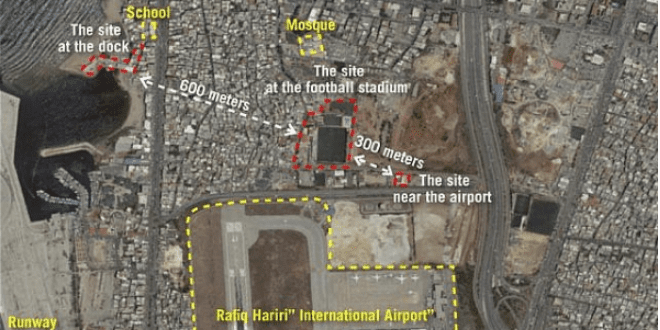It was hard to miss the videos of the double explosion in Beirut. The first one was really big; the second was eye-poppingly enormous! And in horrific color. The damage was truly terrible, and the casualty count is rising. So, first, it should be said that thoughts and prayers should be with the people of Beirut.
But it created a conundrum for the Hezbollah-dominated Lebanese government. If it claimed the damage was done by Israel, it would be admitting that Israel could target the country with impunity. Which it can, but that is not something Hezbollah wants to admit because it would create pressure for a military response—a war it cannot win. In addition, it would be admitting that Hezbollah—a proxy of Iran—was storing rockets, missiles and rocket fuel in the middle of capital of Lebanon. So, first the government said the warehouse near the waterfront was a “fireworks factory” that had exploded. Then they said it was a wheat storage silo.
Finally, Lebanese Interior Minister Mohammed Fahmi admitted to the presence of highly explosive materials at the port, saying, “We have to wait for investigations to know the cause of the explosion, but preliminary explanation indicates materials seized years ago exploded in the Beirut Port warehouse.”
At the same time, OTVLebanon reported, “Informed sources close to Hezbollah told the OTV: There is no truth in everything that is being circulated about an Israeli strike on Hezbollah weapons in the port.”
The Israeli government, actually, has officially offered assistance to the Lebanese government, including hospital facilities inside Israel and relief teams of the sort that have operated under emergency conditions everywhere from Armenia to Mexico to Haiti to Louisiana.
Israel, of course, does have and indeed manage “red lines” in the region. This is an important conversation—just not the conversation going on in Lebanon right now. Israel has had three red lines throughout the Syrian Civil War that began in 2011:
- No Iranian or Hezbollah bases near the Israeli border
- No weapons delivered by Iran to Hezbollah that Israel considers “situation-changing”
- No use of non-conventional weapons
This week, the Israel Defense Forces (IDF) said it bombed Syrian observation posts, intelligence gathering equipment, anti-aircraft cannons and command-and-control infrastructure. Syrian state media SANA quoted a military source as saying the attack caused only material damage and no injuries. Israel also struck Hamas sites in Gaza on Monday, after Iron Dome intercepted a rocket aimed at the Israeli town of Sderot. The IDF said warplanes hit a cement factory used in the construction of tunnels, as well as “underground facilities” used by Hamas. Palestinian media agreed, saying the jets struck “resistance sites” near Khan Younis and Rafah.
A great many things have blown up in Iran over the past several months, too, beginning with the nuclear facilities at Parchin and Natanz—appearing to have set back the Iranian nuclear program at least a year, or more—and an underground facility thought to be a chemical weapons research lab run by Iran’s Islamic Revolutionary Guard Corps.
What is clear is that Israel’s management of its red lines precludes strikes that target civilian areas. They are not designed to create havoc and mass casualties among the people of Lebanon, Syria or Iran. They are designed to manage the growth of the sorts of weapons that would create havoc and mass casualties among the people of Israel, if used by Iran, Hezbollah or Syria.
So, back to Lebanon.
Utterly broke and without a functioning government, Lebanon was in the midst of a national nervous breakdown before this disaster. This may be the time that the international community—including Israel—can come together and (a) provide emergency assistance to the people of Lebanon and (b) respond to Lebanon’s inability to govern itself under the boot of Hezbollah—which is, essentially, under the boot of Iran.
There had been a suggestion, made privately and discussed privately before the explosion, that Israel would be willing to help Lebanon if Hezbollah could be forced out of the picture. If you were Lebanon, which of the following choices would be most appealing?
- Help from Israel or the continued use of the Lebanese population as a human shield behind which Iran militarizes the country and puts rockets, rocket fuel or whatever it was storing in the port of Beirut in front of you?
- Lebanon as a neutral party vis-a-vis Israel—as it once was and as the head of the Lebanese Maronite Church, Bechara Boutros al-Raji, pleaded that it be again—or puppet status as a proxy of Iran?
- The Lebanese Armed Forces working with the United States as it has done, or Lebanon occupied by Hezbollah for the military benefit of Iran?
In other words: Hezbollah in, or Hezbollah out?
The people of Lebanon have been demonstrating since last October against Hezbollah, Iran and the inability of their government to govern. It is time someone listened.
Reprinted with author’s permission from Jewish Policy Center





